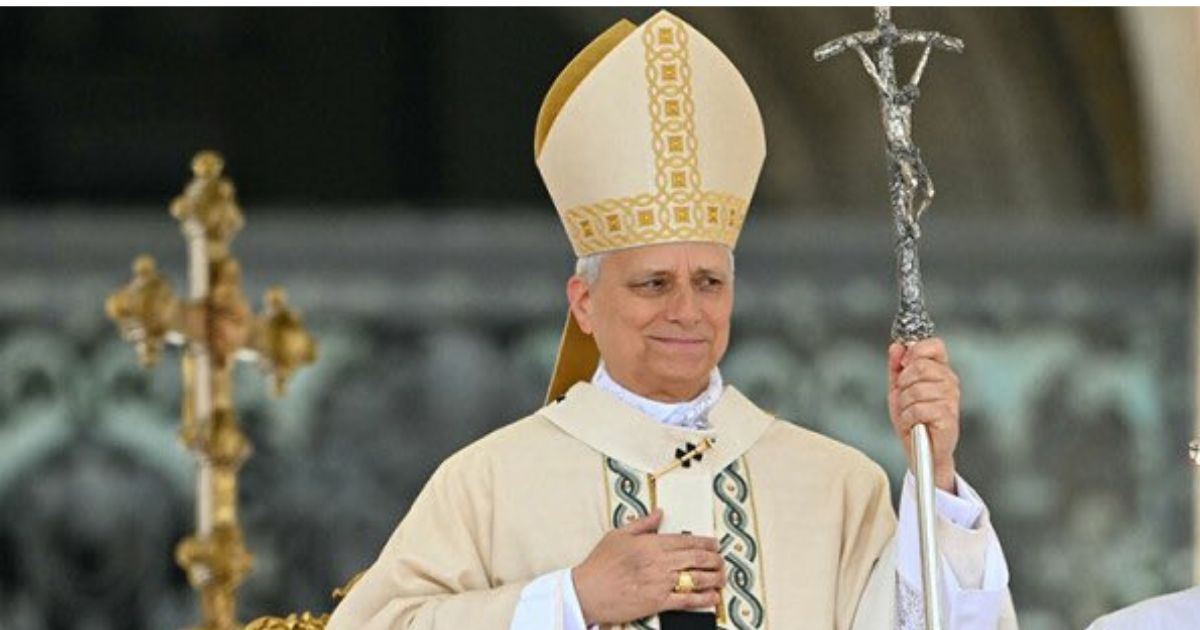Pope Leo XIV was born as Robert Francis Prevost in Chicago. So, when he became the Pope and chose his name, he made history by becoming the first American to hold the papal office. He is also the first member of the Augustinian Order to be elected to the papacy.
His rise to the highest position in the Catholic Church is significant symbolically. But what interests the career bureaucrats most is that it also raises intriguing legal and bureaucratic questions.
All this is due to his U.S. citizenship. There are questions, complications, and diplomatic jargon involved, particularly concerning Social Security and taxation.
As an American citizen, Pope Leo XIV is technically still under U.S. laws governing taxation and social security benefits. This unique circumstance has raised many questions: Should the Pope pay taxes, and if so, how much? Is the Pope eligible to receive federal benefits just like any other American retiree?
While these notions may seem far-fetched, it’s a legitimate question worth unpacking.
The Vatican provides for nearly all of the Pope’s needs, including housing, food, travel, healthcare, and security. Technically, the Pope is also entitled to a salary of around €30,000 (about $33,000). However, both Pope Francis and previous pontiffs have declined this stipend, and Pope Leo XIV may very well follow suit.
New Pope’s $33,000/Month Salary & Perks!
Watch: https://t.co/jvYQgSIZQT#U.S._President #Vatican #Pope_Leo_XIV #salary #retirement #Catholic_Church #Popemobile #perks pic.twitter.com/cw4Ar7F0fR— NewsToday (@HealthMav) May 11, 2025
Pope Leo XIV also took a vow of poverty as per the norm of the Augustine Order. This means that any income he may have earned before becoming Pope would have been assigned to his order, and he didn’t keep anything for his personal use. All the necessities are taken care of by the order itself.
Such arrangements and rules of Order, and his current position as The Pope complicate both his eligibility for government benefits and his financial profile as a taxpayer.
This is interesting, Pope Leo XIV being a dual citizen of the United States is required to pay taxes on *worldwide* monies – regardless if he takes the salary that the pontiff would receive— but the plot thickens 👀👇 pic.twitter.com/ZXJTzt22yk
— Erica 🇺🇸🇺🇸🇺🇸 (@EricaRN4USA) May 13, 2025
As per the country’s tax rules, U.S. citizens are taxed on their worldwide income, regardless of where they reside. This includes those living in the Vatican. If Pope Leo XIV were to accept the Vatican’s salary, he could technically owe up to $135,287 in taxes.
This would include federal and state self-employment taxes. However, this is only applicable if he claims the income personally.
However, Pope Leo XIV may be exempt from some standard U.S. tax obligations. That’s because of his religious vows and the vow of poverty that led to him handling over his income while in Augustinian Order.
Pope Leo XIV is 69 years old and was born in the United States. I wonder if he collects Social Security?
— PBnJ (@PBnJn3kids) May 9, 2025
As per Social Security Administration, to qualify for the U.S. Social Security benefits, an individual must earn 40 credits. This has to be earned typically by working about 10 years in jobs that have paid into the system.
In the case of Pope Leo XIV, he has spent the majority of his adult life in religious service. The majority of which has been outside of the U.S. It includes missionary work in Peru and various roles in the Vatican. Therefore, it remains unclear whether he ever met the work criteria for Social Security eligibility.
On Pope Leo’s possible tax liability for his worldwide income earned as an American citizen. What his obligations to the IRS will be as Pope are still a bit mysterious, but he’s likely never filed a tax return due to his vow of poverty pic.twitter.com/7LKgkFqxRS
— Matthew Zeitlin (@MattZeitlin) May 16, 2025
Based on factors such as his vow of poverty, the likelihood of sufficient qualifying income, and his complete financial support by the Vatican, it is unlikely that Pope Leo XIV will receive a Social Security check.
His American roots may create an interesting case study; his job as the Pope of Catholics all around the world is more than sufficient, both spiritually and financially.













